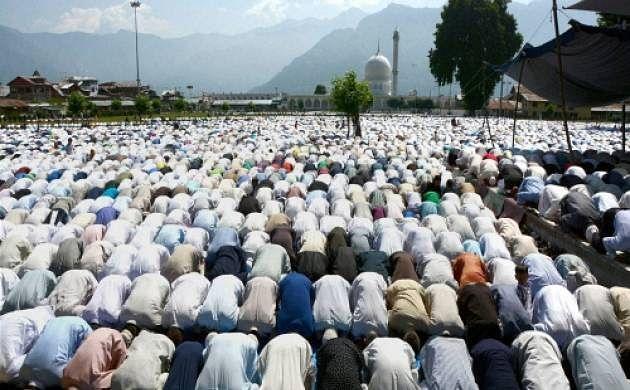No Ban on Eid ul Azha Sacrifice, Authorities Clarify as Uncertainty Looms in J&K

Representational Image. Image Courtesy: Greater Kashmir
Srinagar: Ahead of Bakri Eid next week, the authorities in Jammu and Kashmir on Saturday said the communique over slaughter of bovine animals has been “misunderstood” and that no such ban has been ordered by the administration.
Many, however, still believe that confusion prevails in the backdrop of a century old law that banned bovine slaughter in Kashmir and implementation of rules and rights under animal cruelty and welfare rules.
On Friday, the department of Animal and Sheep Husbandry and Fisheries shot an advisory to the civil and police administration citing an official letter bearing No: 9-2/2019-20/PCA dated 25.06.2021 it had from Animal Welfare Board of India, Ministry of Fisheries, Animal Husbandry & Dairying.
“Large numbers of sacrificial animals are likely to be slaughtered in the UT of J&K during Bakra Eid festival scheduled from 21-23 July, 2021 & the Animal Welfare Board of India, in view of animal welfare has requested for implementation of all precautionary measures to strictly implement the Animal Welfare Laws,” the advisory read.
The administration was suggested to take “all preventive measures” as per the provisions of Acts and rules to stop “illegal killing of animals” and to take “stringent action” against the offenders violating animal welfare laws.
The advisory was considered as an official communication putting a ban on sacrificing bovine and camels ahead of Eid-ul-Azha or Bakri Eidt to be celebrated in Kashmir and the global Muslim world on July 21-22. The advisory created a furore as critics turned to social media to denounce the alleged move.
A resident of Srinagar, Mohd Abbas has been trading in sacrificial animals for about 20 years. Every year he would buy a stock ahead of Eid ul Azha but, this year the controversy had turned him “reluctant.”
“I have given the order for stock but now i have decided otherwise. First they said there is a ban now I am hearing there is no ban but it is risky anyway given the situation. I have a family with kids so I will do something else,” he told NewsClick.
Prominent religious bodies in the region termed the move as “arbitrary” and an infringement of religious obligations.
An amalgam of nearly a dozen religious groups, Muttahida Majlis-e-Ulema (MMU) Jammu and Kashmir, which is headed by incarcerated Mirwaiz Moulvi Umar Farooq said the move was “discriminatory”.
“It surprising that sacrifice of bovine animals on the religious occasion of Eid is being termed illegal and disallowed under the garb of prevention of cruelty to animals Act,” an MMU statement read.
The Principal Secretary Animal and Sheep Husbandry, Naveen Kumar Choudhary, however, clarified that “no ban” has been imposed on sacrificing of bovine animals on Eid-ul-Azha but added that the slaughtering should be “done as per animal laws.”
“It is just an advisory, not a ban order and has been issued by the animal welfare board asking the concerned to comply with animal laws and the same has been forwarded by the director planning,” Naveen was quoted as saying.
A senior lawyer based in Kashmir told NewsClick that the government should be more clear on defining the rules regarding the sacrifice or slaughter of animals that are commonly consumed in the region.
“The advisory has added to the confusion the way it was drafted. Camel sacrifices are extremely rare in Kashmir and bovine slaughter is also uncommon due to the laws that governed the region under the erstwhile Ranbir Penal Code (RPC),” the lawyer said.
He added that laws over bovine slaughter – which included cow and buffalo – date back to 1930s. The laws that barred bovine slaughter in Jammu and Kashmir, he said, were most stringent in the country that could lead to 10 years of imprisonment for such offenders. That law ended with the abrogation of Article 370 on August 5, 2019 as the government of India extended all central laws to the region.
Get the latest reports & analysis with people's perspective on Protests, movements & deep analytical videos, discussions of the current affairs in your Telegram app. Subscribe to NewsClick's Telegram channel & get Real-Time updates on stories, as they get published on our website.























